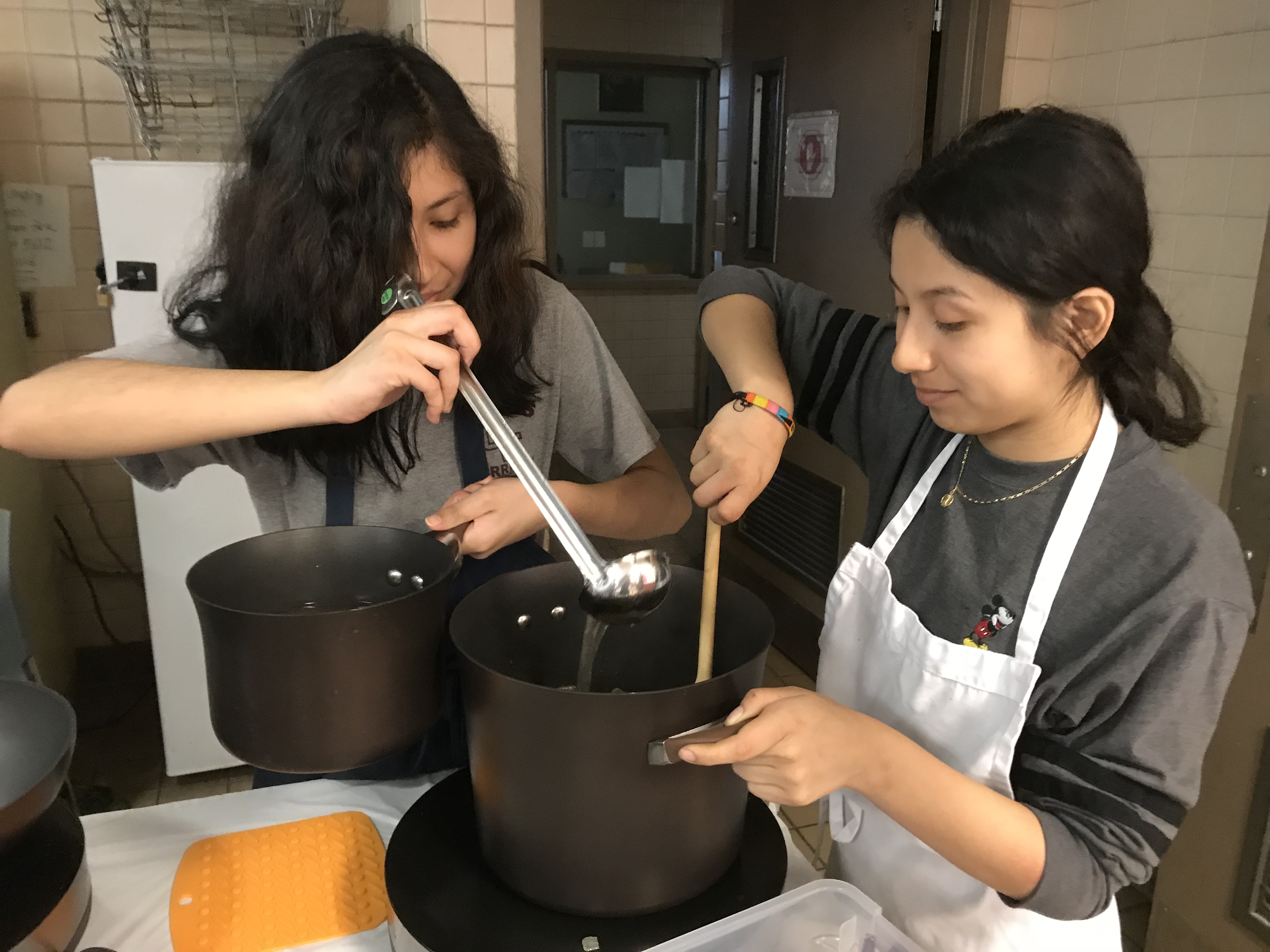Skill Reinforcement: Driver of Behavior Change

Skill reinforcement is a driver of behavior change for healthy eating patterns.
I’m always a bit surprised at how much faith teaching kitchen program designers place on cooking demos. No question: Demos can be very inspiring. They provide concrete ideas. They teach radically different (and much healthier) meal concepts than what their audience (usually patients) typically eat…
This is the ninth (and nearly the last) article in a new series to illuminate key ‘experiential drivers of behavior change’ around healthful eating. We have identified 10 distinct behavior drivers after 20 years of designing, evaluating and retooling curriculum. We are currently investigating these drivers in a new study in collaboration with Columbia University’s Teachers College. Our goal is to open a new area in the scientific literature that illuminates successful delivery and communication techniques. We hope to achieve consensus about what constitutes effective Teaching Kitchen curriculum as more is added to this body of research.
The Neuroscience Behind Behavior Change
Yet, when we look at what the brain needs to learn something new, one-off or periodic demos fall short. At least, when it comes to being an effective means to induce measurable, sustainable changes in behavior.
There are some great books out there which translate findings in neuroscience for lay readership and application that help to explain why this is the case. One of my personal favorites is “Super Brain” by Rudolf Tanzy and Deepak Chopra. Another great book in the business field about behavior change is “The Power of Habit” by Charles Duhigg. These books reinforce some important truths about motivating people to make any type of radical change in lifestyle:
- People need to experience a perceived benefit of such change to be sufficiently motivated to make the effort
- To learn something new, humans respond most strongly to a multi-sensory emersion
- Brain patterning changes with practice and repetition – without it, the brain will not learn a new skill or change patterns
Expectation vs Reality: Skill-Reinforcement Outside the Teaching Kitchen
There are other components to the human brain’s requirements to make real change. However, I am emphasizing the above because they are so linked to the idea of ‘hands on’ immersion in cooking. They further illuminate the need for repetition with a hands-on style class, to reinforce new skills.
To some, this may all sound academic and the distinction of reinforcing over time obvious. Yet, the expectation in many clinical teaching kitchens is that the ‘hands on’ practice piece will happen at home. Clinicians expect that patients will come back to their next teaching kitchen session to share their progress and seek help. At this point, motivational counseling around their diet and triggers can support such patients to a path for success.
This expectation is inconsistent with 20+ years of research into what it takes for food behaviors to take hold. Cooking is a skill and eating at its most enjoyable is a social experience. Therefore, the experience of learning to cook is reinforced greatly when there is a social component to the learning process.
The Power of the Collective Win
Hence, when a group learns to cook in collaboration, they all experience that sense of ‘level playing field.’ This comes from learning something new when your novice abilities are exposed for your peers and instructor alike to see. You feel vulnerable and humbled. With repetition over time, you tangibly witness your increasing success. You’re part of a collective ‘win’ in the form of a delicious meal. The ‘high’ of the success shifts values to make attainment of mastery of the skill (cooking) more important. More intrinsic motivation is achieved. This is consistent with Self Determination Theory (SDT), which points to 3 human needs: autonomy, competency and relatedness. FamilyCook is embarking on new research in 15 settings in 2018. We’re exploring how SDT underscores our ‘drivers of behavior change’ to help teaching kitchens design more effective program constructs.
To learn more about our evidence-based Teaching Kitchen programs, visit our Teaching Kitchen page. If you’re looking for guidance in weaving Skill Reinforcement into your teaching kitchen, email me at lynn@familycookproductions.com.
